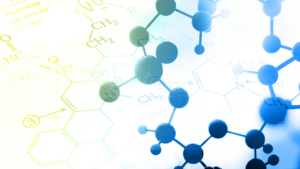Liquid Chromatography-Mass Spectrometry (LC-MS) is a powerful analytical technique that combines the separation capabilities of Liquid Chromatography (LC) with the identification and quantification abilities of Mass Spectrometry (MS). This hybrid technique is widely used for the analysis of complex mixtures and the identification of compounds within those mixtures.
Principles:
- Liquid Chromatography (LC): LC separates components of a mixture based on their interactions with the stationary phase and mobile phase, as described earlier in LC analysis.
- Mass Spectrometry (MS): The separated compounds from the LC column enter the mass spectrometer, where they are ionized, separated according to their mass-to-charge ratio (m/z), and detected.
- Ionization Methods: Various ionization methods like electrospray ionization (ESI) or atmospheric pressure chemical ionization (APCI) are used in LC-MS to ionize the separated compounds before entering the mass spectrometer.
Applications:
- Pharmaceuticals: Used for drug discovery, pharmacokinetic studies, and drug metabolite identification.
- Proteomics and Metabolomics: Applied for studying proteins, peptides, metabolites, and other biomolecules in biological samples.
- Environmental Analysis: Used for detecting and quantifying pollutants, pesticides, and other environmental contaminants.
- Food and Beverage Industry: Applied in food safety testing, identifying additives, and authenticating food products.
Strengths:
- Compound Identification: Provides accurate identification of compounds through mass spectral data, allowing the detection of unknown or trace compounds.
- High Sensitivity: Offers high sensitivity, enabling the detection of compounds at very low concentrations.
- Quantitative Analysis: Allows accurate quantification of compounds through calibration curves or peak area integration in the chromatogram.
Limitations:
- Sample Complexity and Matrix Effects: Complex sample matrices can interfere with ionization and detection, affecting sensitivity and accuracy.
- Cost and Maintenance: Instruments can be expensive to purchase, operate, and maintain. Additionally, expertise is needed for method development and optimization.
- Sample Preparation: Samples must be compatible with the mobile phase and the ionization method, which might require extensive preparation steps.
- Instrument Complexity: LC-MS instruments are sophisticated, and their operation requires a certain level of expertise.
In summary, Liquid Chromatography-Mass Spectrometry (LC-MS) is a versatile and powerful analytical technique used for compound identification and quantification in complex mixtures. Its strengths include compound identification, high sensitivity, and quantitative analysis capabilities. However, limitations include sample complexity, cost, sample preparation requirements, and instrument complexity. Nonetheless, LC-MS is a fundamental tool in various fields, including pharmaceuticals, environmental science, proteomics, and metabolomics, due to its ability to provide detailed information about compounds in complex samples.


 LC – Liquid Chromatography
LC – Liquid Chromatography